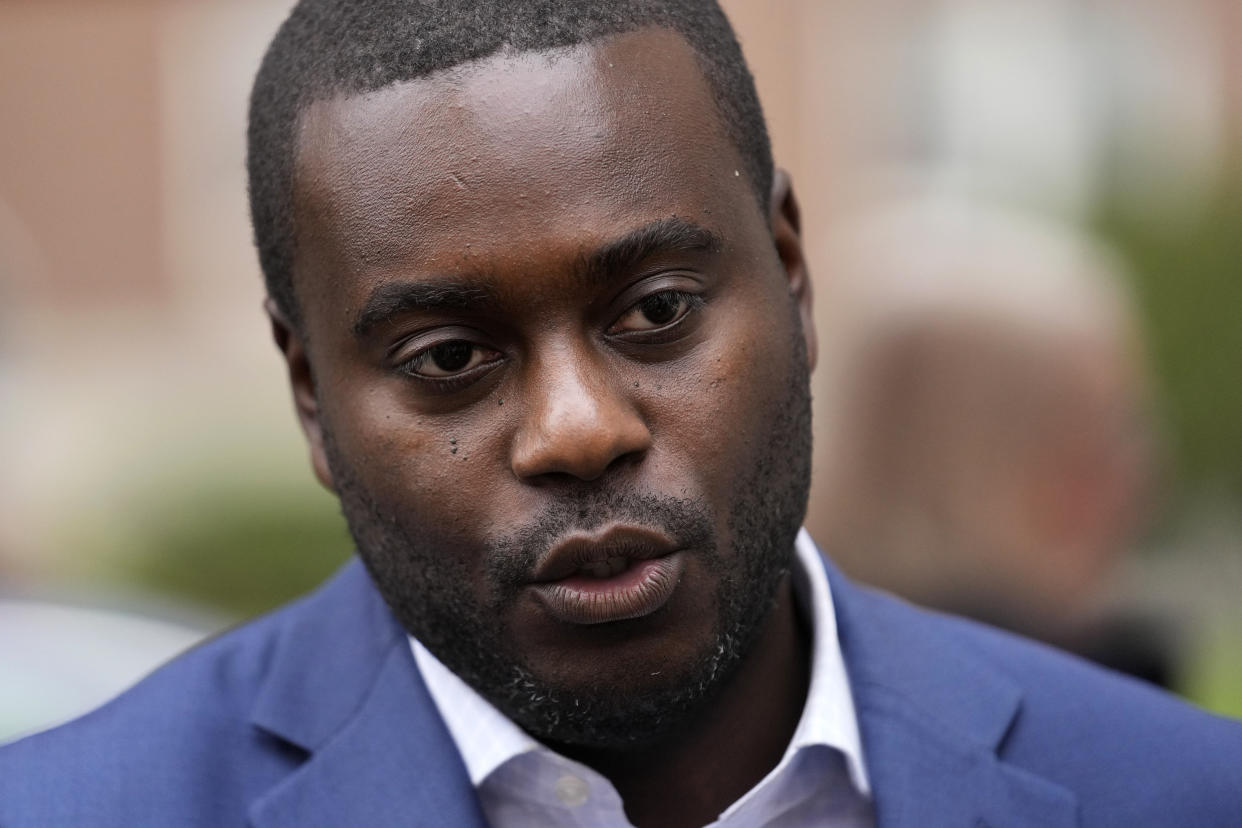2023 election results: Historic firsts in Virginia and Rhode Island; Moms for Liberty fails and other important outcomes you may have missed

Tuesday’s off-year elections saw Democrats win a pro-abortion-rights referendum in Ohio and turn the entire state legislature in Virginia blue, dealing a setback to Republican Gov. Glenn Youngkin. But there were also other results, less prominent but arguably no less significant.
Below, five outcomes from Tuesday’s races you may have missed.
Recommended reading
History made in Virginia

Danica Roem became the first transgender person elected to a state legislature in 2017, when she won a seat in Virginia’s House of Delegates. On Tuesday, Roem made history again, prevailing against her Republican opponent, former police officer Bill Woolf, to become the first transgender person elected to the state Senate.
Her election came at a time of intense culture wars, driven largely by conservative politicians, about transgender athletes.
Roem argued that her success was rooted in a practical approach to the concerns of her Prince William County constituents, including traffic congestion and school meal affordability. “I’m known nationally for being trans — I’ve never run away from that. At the same time, locally, I got your kids fed; I got your commute fixed,” she told The Hill. “What else is there for me to say?”
Woolf ran on a law-and-order message that Republicans believe has resonance during a time of high anxiety about violent and property crime. But as was the case in 2022, that message appeared to have limited appeal to voters.
Recommended reading
… and in Rhode Island

Prevailing easily over his Republican opponent, Gabe Amo will become the first Black person to represent Rhode Island in Congress.
The seat opened after Rep. David Cicilline announced his retirement in February. At the time, Amo was working in Washington as a White House adviser. He promptly announced his intention to run for Cicilline’s seat and returned to Rhode Island, where he had been raised, in the town of Pawtucket, by his West African immigrant parents.
Observers were surprised in September to see Amo emerge from a crowded Democratic primary that included more experienced politicians, as he had never run for elected office before.
In the general election, Amo ran on a mainstream Democratic platform that included gun control, enshrining abortion rights and tackling climate change. The argument resonated in the largely white, middle-class district, in what could be an auspicious sign for a Democratic Party that will need voters from that demographic next year.
Amo will need them again, too. Because Cicilline would have been up for reelection in 2024, the 35-year-old will have to defend his seat after serving in Congress for only 10 months.
“I got my running shoes on,” he said on Tuesday.
Recommended reading
Republicans fall short in New Jersey

Discontent over coronavirus lockdowns and school closures almost allowed Republicans to topple incumbent Democratic Gov. Phil Murphy in 2021. The following year, GOP candidate Tom Kean Jr. managed to defeat Rep. Tom Malinowksi, a Democrat, in what was seen as a significant victory that potentially presaged a broader realignment in New Jersey.
This year, Republicans hoped to use cultural issues to win back control of either the state Senate or Assembly. The deepening unpopularity of President Biden and a new corruption scandal involving Sen. Robert Menendez, a Democrat, seemed to work in their favor.
GOP candidates ran in opposition to how LGBTQ matters are handled in schools, a major Republican concern nationwide that has resonated most definitively in states like Tennessee and Florida. They also ran against Murphy’s proposals for offshore wind farms, using the images of dead whales to stoke opposition (it is not clear that wind turbines harm whales; plans for two wind farms that would have been built by a Danish firm were canceled days before the election).
The arguments failed, and Democrats held on to both the upper and lower chamber of the state legislature in Trenton.
“This is a big night for Democrats,” Murphy said.
Recommended reading
School boards show culture war limits

Conservative groups like Moms for Liberty used parental anger over pandemic-related lockdowns to stoke outrage over other education-related matters, in particular on how issues of race and sexuality are taught in schools. Throughout 2021 and 2022, school board meetings from Florida to California erupted in controversy — and school board elections suddenly became a matter of national significance.
On Tuesday, candidates supported by Moms for Liberty lost in Bucks County, Pa., and Loudoun County, Va., where suburban voting can sometimes point to developing national trends. Candidates affiliated with the extremist organization also fared poorly in Iowa, where three school boards in suburban Des Moines flipped to Democratic control.
“Last night, decency won big,” wrote Mallory McMorrow, a Michigan state legislator, in a social media post.
Recommended reading
Progressive prosecutors in trouble

Led by Philadelphia’s Larry Krasner, the progressive prosecutor movement promised criminal justice reform that would balance racial and class equity with public safety. Cities and suburbs across the country elected district attorneys who promised to investigate police departments and focus on alternatives to incarceration.
But a rise in crime that tracked closely with the coronavirus pandemic made those promises difficult to achieve, as did, in some cases, political corruption. The decisive 2022 ouster of San Francisco district attorney Chesa Boudin was a sign that the movement was approaching a crisis point.
Progressive prosecutors remain ensconced in some of the country’s largest cities, including New York and Los Angeles, but Tuesday offered a few warning signs, most notably the apparent ouster of incumbent Buta Biberaj in Virginia’s Loudoun County (votes are still being counted as of Wednesday, but her Republican opponent is ahead).
In suburban Pittsburgh, incumbent Steven Zappala defeated progressive challenger Matt Dugan after losing to Dugan in the Democratic primary and then running as an independent in the general election.
In upstate New York’s Broome County, which includes the college town of Binghamton, Matt Ryan — Binghamton’s former mayor — lost to Republican Paul Battisti, who ran on a traditional law-and-order platform.
Recommended reading
